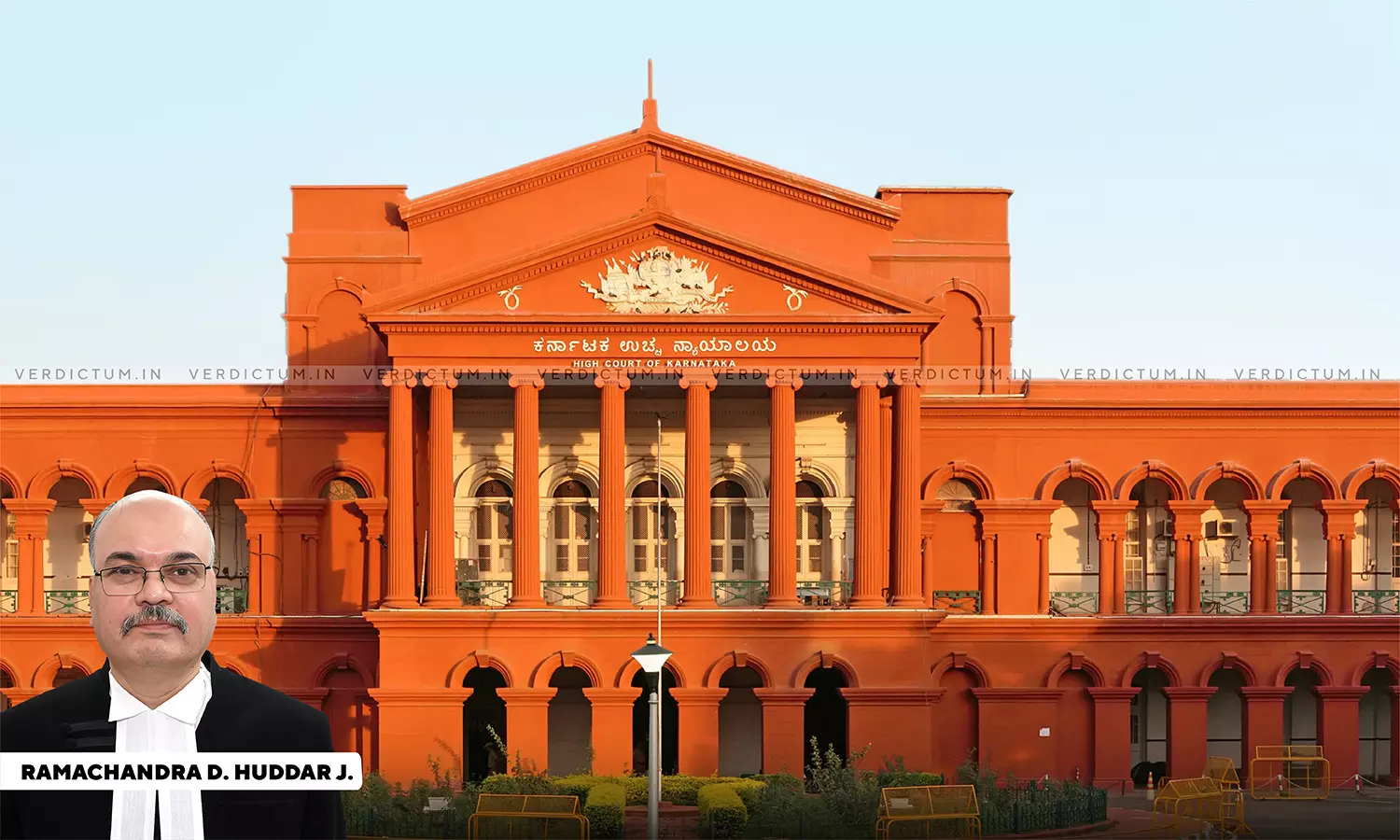
Justice Ramachandra D. Huddar, Karnataka High Court
Every Marriage Of Indian Citizen Solemnized Abroad Must Not Necessarily Be Registered Under Foreign Marriage Act: Karnataka High Court
 |
|The Karnataka High Court considered the issue related to the validity of marriage not registered under Foreign Marriage Act.
The Karnataka High Court noted that the Foreign Marriage Act, 1969 does not provide that every marriage of an Indian citizen solemnized abroad must necessarily be registered under it and that Marriages can still be considered valid based on the personal law applicable to the parties and law of the country where the marriage was performed.
The Karnataka High Court dealt with four appeals challenging a common order of the Session Judge granting temporary injunction restraining the Appellants from dispossessing the Respondent or alienating or encumbering the scheduled property.
The Bench of Justice Ramachandra D. Huddar observed, “The Foreign Marriage Act, 1969 was enacted to regulate marriage solemnized by Indian citizen outside the territory of India. It lays down a formal procedure for how such marriages to be performed and legally recognized…However, it is important to note that, the Act does not say that, every marriage of an Indian citizen solemnized abroad must necessarily be registered under it…Marriages can still be considered valid based on the personal law applicable to the parties and law of the country where the marriage was performed. For example, if two individuals get married in a foreign country, according to local laws or religious or customary manner recognized in that jurisdiction, the marriage may still be considered valid under Indian Law unless it violates Indian Public Policy or any mandatory legal condition.”
Advocate Varadaraj Ranganatha Rao Havaldar represented the Appellants, while Advocate Siji Malayil represented the Respondent.
Case Brief
The Appellants are the in-laws of the Respondent, who was married to the late son of Appellants. The Respondent-Wife was residing with her husband abroad.
It was the contention of the Respondent-wife that during the subsistence of her marriage, she transferred substantial amounts both in Indian and US Currencies to her husband's account and those funds were subsequently utilized by her father-in-law to acquire the suit scheduled property. She has further averred that, suit property was agreed to be purchased in the name of her father-in-law merely as a matter of convenience, since the Respondent-wife and her husband were then residing abroad, with an assurance that, it would eventually be transferred back to them.
However, after the demise of her husband, the Appellants made attempts to illegally dispossess her and to alienate the property.
The Appellants disputed the marital status of the Respondent-wife with their deceased son and have categorically denied her claim over the property or her possession. The Appellants contended that the purchase of the property was made entirely from the funds of father-in-law and she had been permitted to temporarily stay in the property during the period of her husband's illness and had no legal or possessory right in the said property.
It was further submitted by the Appellants that no marriage has been certified by the authority and mere production of documents executed before the notary is not sufficient to prove the marital status.
On the other hand, the Respondent-wife produced the marriage certificate executed in the US, extracts of joint bank account, exchange of WhatsApp messages with her husband and Appellants, photographs and various utility bills to substantiate not only her marital status with the son of the Appellants but also financial contributions towards purchase of suit property.
Court’s Analysis
The Court observed that if the parties have undergone a marriage in accordance with the norms or religious practices of the foreign country and the ceremony is documented and supported by evidence, such as cohabitation, joint financial dealings and social recognition, the marriage may still carry legal significance in India.
The Court said, “Therefore, the provisions of Foreign Marriage Act, 1969 must be interpreted in a purposive and inclusive manner so as not to exclude genuine relationship from legal protection simply due to procedural irregularities. The validity of the marriage in such cases, becomes a question of fact to be determined at trial based on the conduct of the parties, the documentary record and the surrounding circumstances.”
In the light of the above, the Court observed that even if a marriage is not registered under the Foreign Marriage Act, 1969, it can still be treated as valid marriage under Indian law for interim purposes, particularly when party asserting the marriage supports it with documents such as photos, proof of residence, joint account or correspondence.
Accordingly, the Court held that the prima facie case is in favour of the Respondent-wife, the balance of convenience undoubtedly tilts with her and grant of interim protection does not irreversibly harm the Appellants whose title and ownership claims can still be adjudicated at the trial.
Therefore, the interim injunction granted in favour of the wife shall continue to operate until the disposal of the suit.
Cause Title: Mohamed Umar Seeni Ariff Khan V. Tanzia Bano Alias Tanzia Banu (Neutral Citation: 2025:KHC:24423)
Click here to read/download Judgment